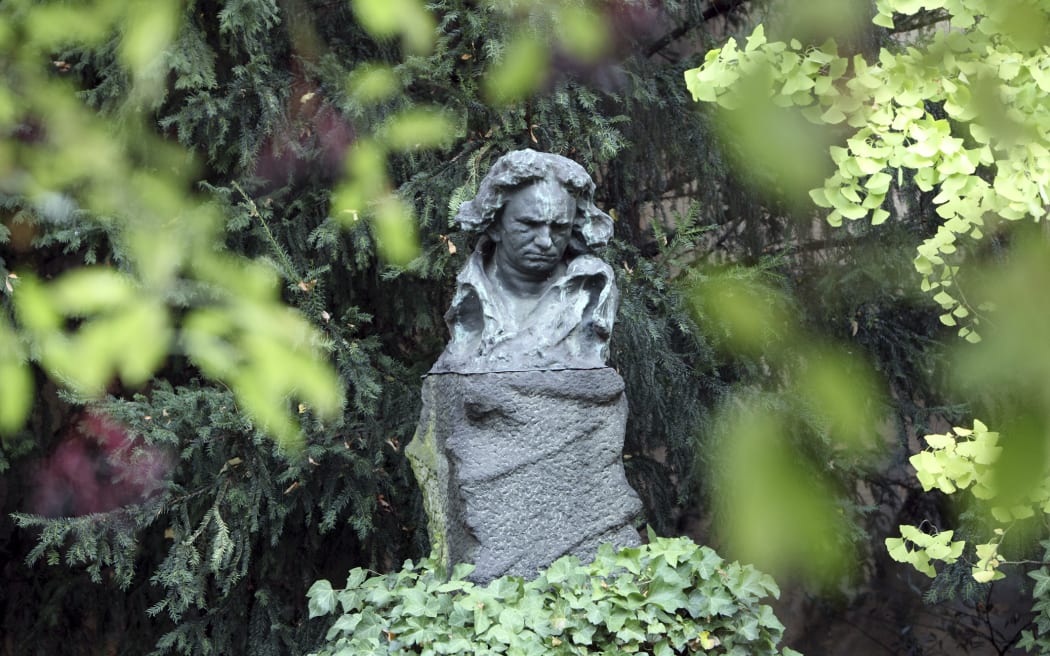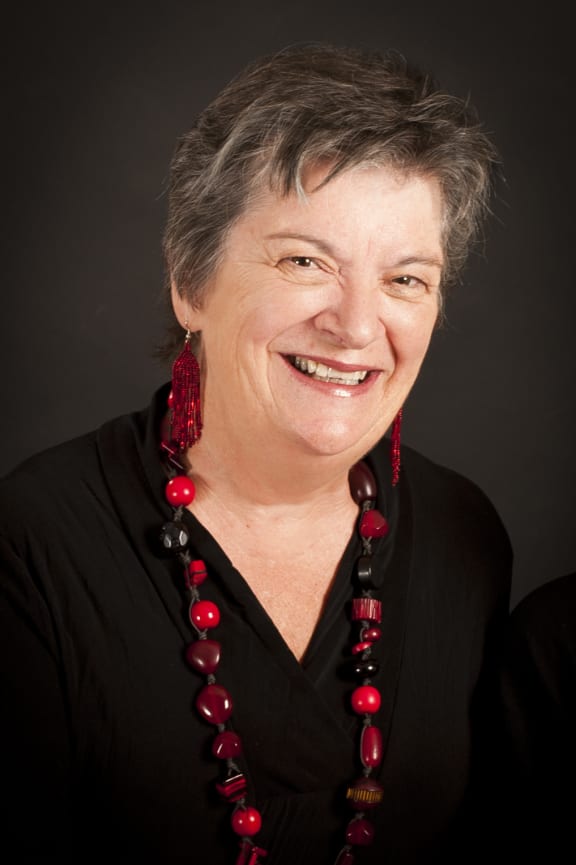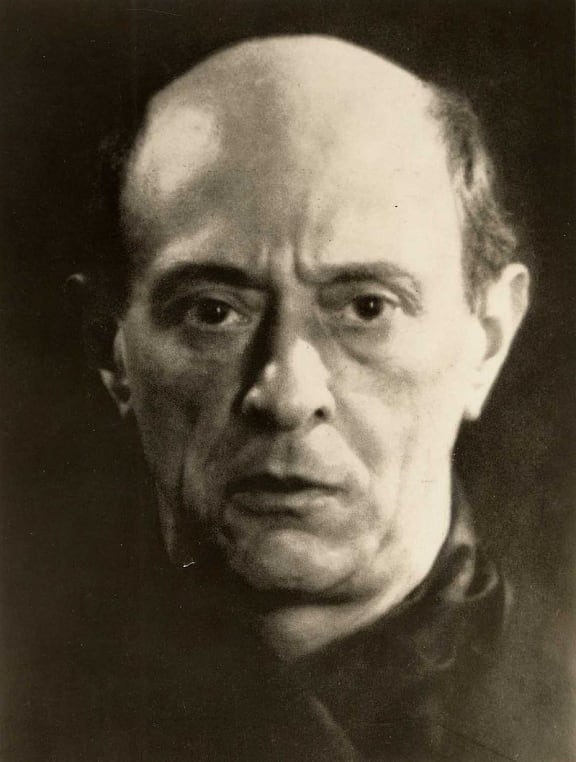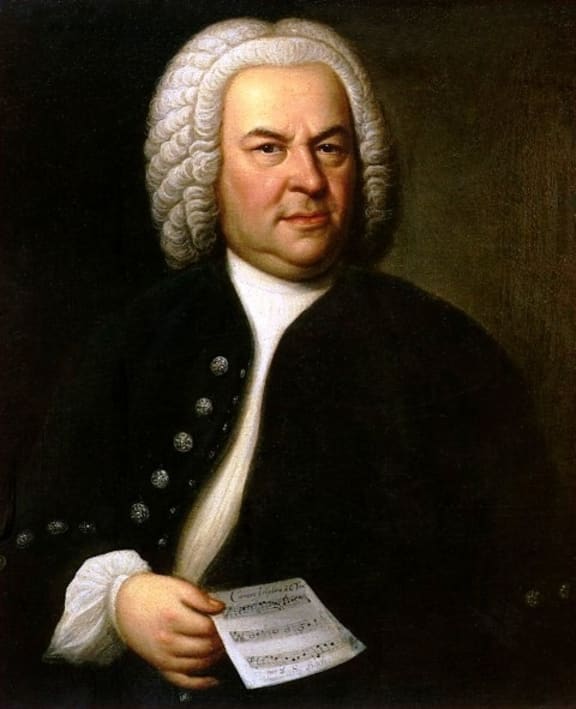Music by Bach and Beethoven, with a cadenza by Brahms completes this trio from three of the great 'Bs' of classical music. Beloved pianist Diedre Irons, one of the personalities of NZ classical music for over forty years, is the soloist.

Sculpture at the Beethoven House in Bonn Photo: Supplied by Deutsche Welle

Diedre Irons Photo: Debbie Rawson
Programme:
SCHOENBERG: Transfigured Night Op 4;
BACH: Keyboard Concerto No 1 in D minor BWV1052;
BEETHOVEN arr Mitropoulos: String Quartet No 14 in C sharp minor Op 131
Performance: Diedre Irons (piano), Orchestra Wellington conducted by Marc Taddei
on Saturday 21 September, 2019. Michael Fowler Centre, Wellington.
In this concert Diedre Irons performs J S Bach's first keyboard concerto, in an arrangement which features a cadenza written by one of Bach's greatest disciples, Johannes Brahms.
Beethoven's String Quartet, Op 131, which many regard as his finest, is performed in an arrangement by the great Greek conductor, Dimitri Mitropoulos, while the concert opens with Schoenberg's Transfigured Night, his musical farewell to the romantic era.
Find out more and listen to this performance here:
SCHOENBERG: Transfigured Night Op 4

Arnold Schoenberg by Man Ray Photo: CC by SA 2.0
'Verklärte Nacht' or Transfigured Night is a Romantic work by Arnold Schoenberg based on a poem by Richard Dehmel.
The poem follows a pair of lovers walking through the cold, dark woods under the light of the moon. The woman confesses to carrying another man’s child. The man forgives her, explaining that the new life she bears and his own forgiveness have transfigured him and them as a couple.
The music, composed in 1899 is lush and richly chromatic. It's a ‘transitional’ work by Schoenberg who was moving past writing quartets to charm Viennese audiences. But at this point he was yet to develop the 12-tone or serial music that would make him famous.
Recorded in Michael Fowler Centre, Wellington on 21 September 2019 by RNZ Concert
Producer/sound engineer: Darryl Stack
BACH: Keyboard Concerto No 1 in D minor BWV1052

Johann Sebasian Bach Photo: Elias Gottlob Haussmann, Public domain, via Wikimedia Commons
Around 1738 J S Bach wrote a set of solo harpsichord concertos. The D minor concerto is one of the earliest examples of a keyboard concerto still performed today.
It has an intriguing, hybrid genealogy. It uses musical material from two of his cantatas and may have originally been composed for the violin.
The three-movement concerto begins with a driving opening theme and fiendishly virtuosic passages that sweep you along on a fast-moving river of notes. The middle movement is slow and mysterious in the key of G minor. By contrast, the intricate counterpoint and brisk tempo of the third movement are characteristic of Bach’s finales. Pianist Diedre Irons ONZM MBE plays a cadenza by Brahms.
Recorded in Michael Fowler Centre, Wellington on 21 September 2019 by RNZ Concert
Producer/sound engineer: Darryl Stack
BEETHOVEN (orch Mitropoulos): String Quartet No 14 Op 131

Sculpture at the Beethoven House in Bonn Photo: Supplied by Deutsche Welle
Beethoven's String Quartet No 14 is the last-composed of a trio of string quartets, and the last of his large-scale works.
Beethoven composed Op 131 during the first half of 1826, but did not live to witness its première.
Robert Schumann believed that the first and this the last quartet had a "grandeur ... which no words can express.”
“They seem to me to stand”, Schumann said “on the extreme boundary of all that has hitherto been attained by human art and imagination."
Beethoven dispensed with the traditional four-movement structure. This piece has seven movements, which are played without a break in an amazing feat of integration.
This arrangement by the great Greek conductor, Dimitri Mitropoulos reimagines the music with the fullness of a string orchestra.
Recorded in Michael Fowler Centre, Wellington on 21 September 2019 by RNZ Concert
Producer/sound engineer: Darryl Stack

